A remarkable wasp parasite
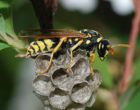
A seven-year study has resulted in a new understanding of the life history of a parasitic insect that infects the paper wasp.

A seven-year study has resulted in a new understanding of the life history of a parasitic insect that infects the paper wasp.

Resistance to pyrethroid based insecticides is spreading rapidly, giving rise to concern that bednets treated with these formulation are becoming less… Read more »
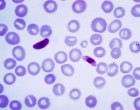
A new study sheds further light on the transcription factor that acts as a master switch that turns on the production of sexual stages in the malaria life… Read more »
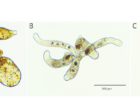
Larval stages of some flukes produce a soldier caste that helps to protect the colony if another species of fluke invades their snail host. New work shows this… Read more »

Dog faeces left on fields containing cattle could expose cows to a parasitic infection that may result in early abortions or leave calves infected with the… Read more »

Exciting new research uncovers some reasons why very few tsetse flies develop salivary gland infections.
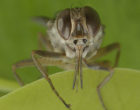
A tsetse control project conducted in Burkina Faso reveals the importance of the engagement of local communities.
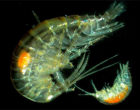
Parasitic infections can cause multiple changes to occur to their hosts. Are these changes all initiated by the same mechanism or are several causes involved?… Read more »
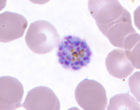
The parasites causing vivax malaria is known to preferentially invade immature red blood cells by attaching to Duffy antigens on the cell surface. An… Read more »
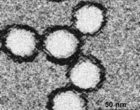
Sporadic epidemics of West Nile Fever occur in Europe in the summer months when the mosquito vector of West Nile virus is biting. Do new introductions occur… Read more »